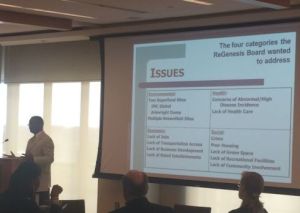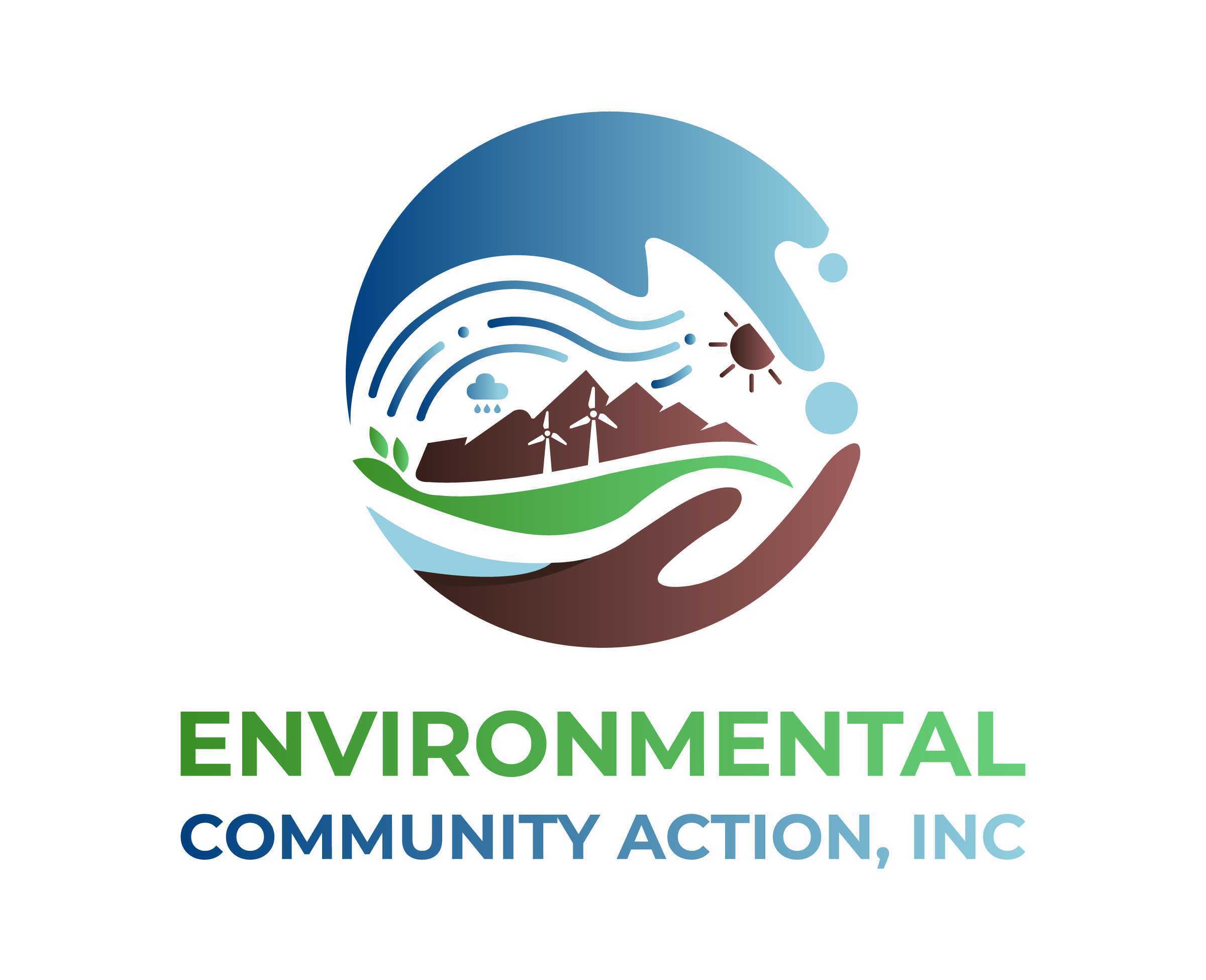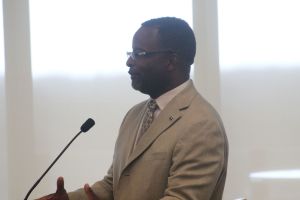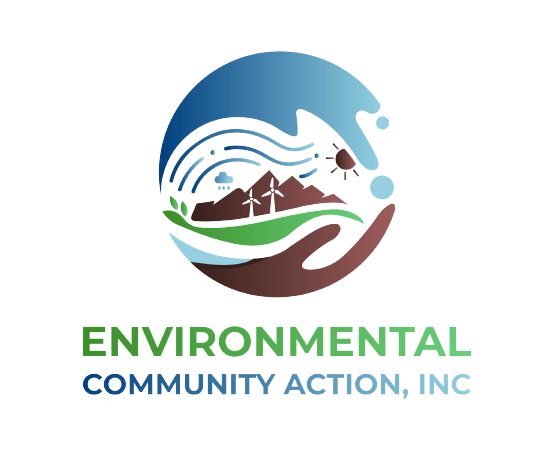How does a community transform two superfund sites and several brownfields into housing developments, health centers and a golf courses? That’s exactly the question the keynote speaker Harold Mitchell answered during his hour long talk at the HERCULES Environmental Health Community Forum last month. State Representative Mitchell had spoken to community members at ECO-Action’s June Community Forum, who wanted to hear more from him.
The process Harold and his community used has been codified into EPA Environmental Justice Collaborative Problem Solving Model (EJCPS). The forum provided local communities both from the metro-Atlanta areas and from as far away as South Carolina to learn from Emory University scientists about the latest research around such topics obesity, healthy schools, climate change, mold and asthma. The forum also presented overview training in the Agency for Toxic Substances and Disease Registry (ATSDR) Action and Environmental Justice Collaborative Problem Solving Models with hopes that communities would begin the groundwork to improve environmental health in their communities. ECO-Action has successfully used elements of this model to advance its work in Proctor Creek in Atlanta and other Georgia communities.
Mitchell now a South Carolina State Representative shared some of the secrets of the success of ReGenesis, a 15-year old program he founded to serve his Spartanburg South Carolina community. Starting with a $20,000 Environmental Justice Small Grant, around 50 community participants developed goals for the project as a whole that would address the environmental contamination in their neighborhood. Community Goal Setting is the first  element of the collaborative problem solving model. For this Spartanburg project, goals were compiled in four areas: Environmental, Health, Economic and Social. The initial goal setting did not define the specific built infrastructure or programs that would ultimately be constructed. Instead, these were left open-ended which allowed the community to later take advantage of opportunities which they really couldn’t have imagined at the start of the process. To date ReGenesis has been able to leverage this initial investment into more than $250 million in funding that has revitalized the community.
element of the collaborative problem solving model. For this Spartanburg project, goals were compiled in four areas: Environmental, Health, Economic and Social. The initial goal setting did not define the specific built infrastructure or programs that would ultimately be constructed. Instead, these were left open-ended which allowed the community to later take advantage of opportunities which they really couldn’t have imagined at the start of the process. To date ReGenesis has been able to leverage this initial investment into more than $250 million in funding that has revitalized the community.
More about ReGenesis and the Collaborative Problem Solving model next week.



